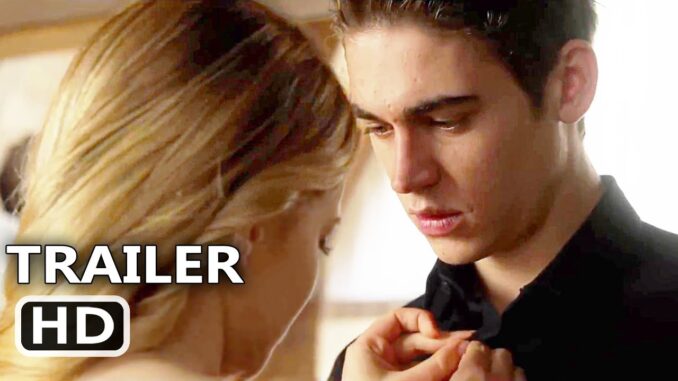
After Everything (2023) Ending Explained: Decoding the Surprising Serenity of Hardin and Tessa
The “After” saga, with its tempestuous portrayal of Hardin Scott and Tessa Young’s on-again, off-again romance, has always thrived on the exhilarating chaos of their passion. Readers and viewers have been accustomed to a relentless cycle of dramatic declarations, heart-wrenching betrayals, and ultimately, fervent reconciliations. So, when After Everything (2023) drew its final, quiet breath, the ending felt less like a thunderclap and more like a gentle, surprising dawn – a denouement that dared to defy the very drama that defined the series, offering a mature and profoundly hopeful resolution that demanded decoding.
To understand the surprising serenity of the After Everything ending, one must first appreciate the crucible from which it emerged. The film finds Hardin Scott at his nadir, struggling with writer’s block, grappling with the trauma of his past, and still profoundly haunted by his fractured relationship with Tessa. He’s a man trying to outrun his demons, attempting to channel his pain into the very art that once caused Tessa so much agony – his tell-all book, “After.” His journey in this installment is one of desperate self-discovery, fueled by therapy, introspection, and the painful realization that he cannot truly move forward until he confronts the wreckage he’s left behind, particularly with Tessa. His eventual flight to Portugal, seeking solace and inspiration, is less an escape and more a forced confrontation with his inner turmoil.
Tessa, on the other hand, embodies a different kind of evolution. Having endured countless emotional rollercoasters, she has, by this point, built a life for herself, seeking peace and stability away from Hardin’s gravitational pull. Her presence at Landon’s wedding, where the film’s climax unfolds, is that of a woman who has found her footing, albeit with a lingering sense of past wounds. She is no longer the naive, impressionable girl who first fell for Hardin’s dark allure. Her resistance to his initial overtures is not born of anger alone, but a protective shield forged from years of hurt and a newfound respect for her own well-being. This agency is crucial; for their reunion to be meaningful, it had to be a choice she made, not a capitulation to his charm.
The true genius and surprise of the ending lies in its quiet subversion of the “Hessa” formula. We’ve come to expect grand gestures, passionate embraces, and declarations that promise an immediate, if precarious, “happily ever after.” Instead, After Everything delivers something far more nuanced and, arguably, more profound. Hardin doesn’t just apologize; he presents Tessa with a testament to his growth: a new manuscript, “Before,” his prequel to “After,” offering his perspective on their early tumultuous relationship. This act is not just an apology; it’s an offering of vulnerability, a tangible proof of his introspection and willingness to lay bare his soul, acknowledging his mistakes from his own vantage point. It’s an intellectual and emotional olive branch, inviting her to truly understand his side of their shared history.
Tessa’s response to this gesture is equally surprising. There are no immediate tears, no instant forgiveness, and certainly no dramatic kiss. Instead, she takes the manuscript, a symbol of his hard-won maturity, and reads it. This act of quiet engagement signifies her willingness to consider, to understand, rather than merely react. The film culminates not in a fiery kiss, but in a simple, intimate dance at Landon’s wedding. As they sway together, their eyes locking with a mixture of understanding, regret, and burgeoning hope, there’s an unspoken acknowledgment of all they’ve been through. It’s a dance that symbolizes a new rhythm, a shared understanding built on growth rather than just raw attraction. The camera pulls back, leaving us with their joined hands, a silent promise of a future built on mutual respect and hard-earned maturity.
This ending is surprising precisely because it breaks the cycle. It doesn’t promise an immediate, perfect reunion, nor does it guarantee an end to all their struggles. Instead, it offers a beginning built on a stronger foundation. The drama of their past has been processed, understood, and transformed into a narrative of growth. Hardin has finally become the man worthy of Tessa’s enduring love, not by changing who he is, but by understanding and owning his flaws. Tessa, in turn, has matured into a woman capable of making an informed, deliberate choice to open her heart again, not out of weakness, but out of a profound understanding of herself and Hardin’s journey.
In essence, After Everything decodes the surprise of its ending by illustrating that true love, especially one forged in such fire, isn’t about eradicating conflict but about learning to navigate it with maturity, vulnerability, and genuine self-improvement. The final dance isn’t the end of their story, but the hopeful, quiet beginning of a different, more stable chapter – a true “after” that, for the first time, feels truly earned. It’s a powerful statement that the greatest romance isn’t always the loudest, but sometimes, the most profoundly understood.
